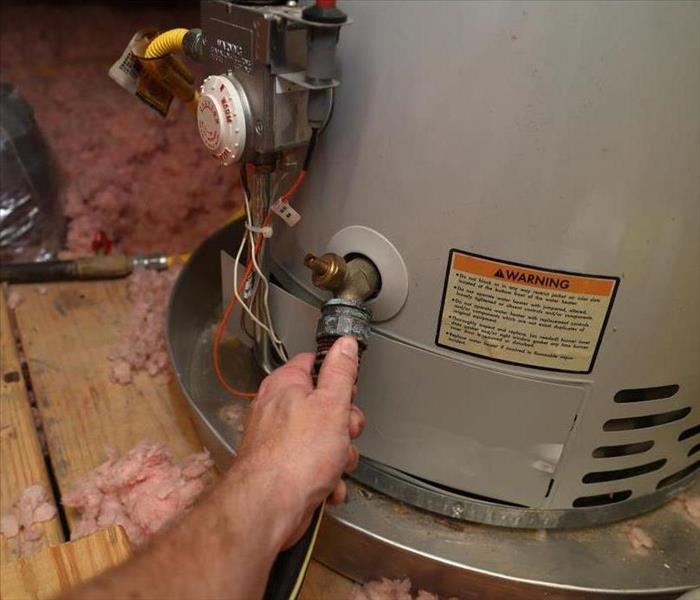Water Heaters: What You Might Hear and What To Do About It
11/29/2021 (Permalink)
What You Might Hear About Water Heaters and What You Can Do About It
If you wake up to a groaning, rumbling water heater, there's a very good chance something is wrong. The bad news is that ignoring the problem could lead to very expensive repairs. The good news is that you can usually identify the problem and work with Valley Glen, CA, residential plumbing professionals before the situation gets too expensive.
Popping
Those pops generally indicate too much sediment in the tank. Solid materials, such as sand or minerals, often settle to the bottom of the heater tank. The popping is the result of lime-scale build-up, mineral deposits, or floating sediment. A water heater flush should take care of the problem. Sometimes a reaction between water with high pH levels and an aluminum anode rod causes a popping sound. Switching to a magnesium anode rod could solve the problem.
Rumbling
This ominous sound indicates the presence of so much sediment that your water heater could quit working very soon. The rumbling usually occurs because water expands as it is heated and forces the sediment to move around. If you hear rumbling, contact a Valley Glen, CA, professional right away.
Sizzling
This may be a great sound when you're making breakfast, but if you hear hissing or sizzling in your water tank, the heating element is probably covered in sediment. This problem is often remedied by draining the tank and then removing and cleaning the element. Sizzling could also indicate restricted water flow. Check all of the valves. If the T&P relief, or safety, valve is hissing, shut down the heater and contact a professional.
Ticking
Pressure fluctuations are usually the cause behind ticking noises. Take a look at water inlet and outlet fittings; these hook-ups could be the culprits. If you're not sure how to find these hook-ups, check with a local professional.
Too much sediment in the water heater is a common cause of many annoying noises but isn't the only problem likely to occur. If you can't quickly pinpoint the problem, contact a professional for more help.





 24/7 Emergency Service
24/7 Emergency Service
